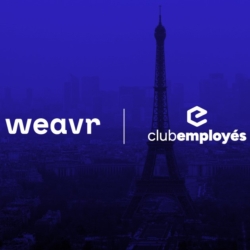July 17, 2024
How IT Simplification creates a superior Digital Employee Experience
 The workplace continues to evolve rapidly, with the shift to hybrid models now featuring heavily in employees’ expectations. Indeed, a recent global study of workers from 11 countries, including the UK, shows 44 percent of employees prefer hybrid work. This new chapter in workplace dynamics could explain Gartner’s recent research, which has shown a growing focus on the Digital Employee Experience (DEX). The findings revealed that by 2025 half of IT organisations will have a DEX strategy, up from just 20 percent in 2023. DEX refers to the quality of employees’ interactions with technology in their work environment, and as remote work becomes the norm, a seamless DEX is crucial. (more…)
The workplace continues to evolve rapidly, with the shift to hybrid models now featuring heavily in employees’ expectations. Indeed, a recent global study of workers from 11 countries, including the UK, shows 44 percent of employees prefer hybrid work. This new chapter in workplace dynamics could explain Gartner’s recent research, which has shown a growing focus on the Digital Employee Experience (DEX). The findings revealed that by 2025 half of IT organisations will have a DEX strategy, up from just 20 percent in 2023. DEX refers to the quality of employees’ interactions with technology in their work environment, and as remote work becomes the norm, a seamless DEX is crucial. (more…)











 A new poll claims that over one quarter (26 percent) of employees in the UK do not trust their CEO to be open and honest, while 24 percent do not trust their senior leadership to do the same. According to the survey of 2,000 employees in the UK from Personio, transparency and employer-employee communication are pivotal to a positive employee experience and trust in the workplace. The research suggests that feeling unheard by leadership could be fuelling employees’ distrust. Over a quarter (28 percent) of employees surveyed say that they are not given a chance to share feedback to leadership on their experiences. Meanwhile, less than half (46 percent) of employees feel that leadership in their organisation actually listens and acts on any feedback when given from staff.
A new poll claims that over one quarter (26 percent) of employees in the UK do not trust their CEO to be open and honest, while 24 percent do not trust their senior leadership to do the same. According to the survey of 2,000 employees in the UK from Personio, transparency and employer-employee communication are pivotal to a positive employee experience and trust in the workplace. The research suggests that feeling unheard by leadership could be fuelling employees’ distrust. Over a quarter (28 percent) of employees surveyed say that they are not given a chance to share feedback to leadership on their experiences. Meanwhile, less than half (46 percent) of employees feel that leadership in their organisation actually listens and acts on any feedback when given from staff. 
 Less than one-third of employees report they are engaged, enthusiastic and energised by their work, according to a new report from Gartner. The survey was showcased during the Gartner ReimagineHR Conference, which took place this week. Gartner defines engagement in three ways: employees feeling energised; employees finding purpose in their work; employees feeling empowered to do valuable work.
Less than one-third of employees report they are engaged, enthusiastic and energised by their work, according to a new report from Gartner. The survey was showcased during the Gartner ReimagineHR Conference, which took place this week. Gartner defines engagement in three ways: employees feeling energised; employees finding purpose in their work; employees feeling empowered to do valuable work. 


 Zoom has opened a new London ‘Engagement Hub’ which the firm claims will spearhead the shift from traditional office spaces to ‘experiential working hubs’. With the demand for hybrid working and remote capabilities giving rise to unconventional ways of operating, Zoom says it has designed its new office to support the changing nature of the employee experience, marking a new era of modern work.
Zoom has opened a new London ‘Engagement Hub’ which the firm claims will spearhead the shift from traditional office spaces to ‘experiential working hubs’. With the demand for hybrid working and remote capabilities giving rise to unconventional ways of operating, Zoom says it has designed its new office to support the changing nature of the employee experience, marking a new era of modern work. 















June 6, 2024
Dear [employee]…Great job! Why AI may not give you the warm and fuzzies
by Stephanie Fitzgerald • AI, Comment, SF, Workplace